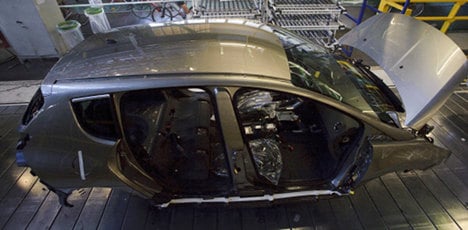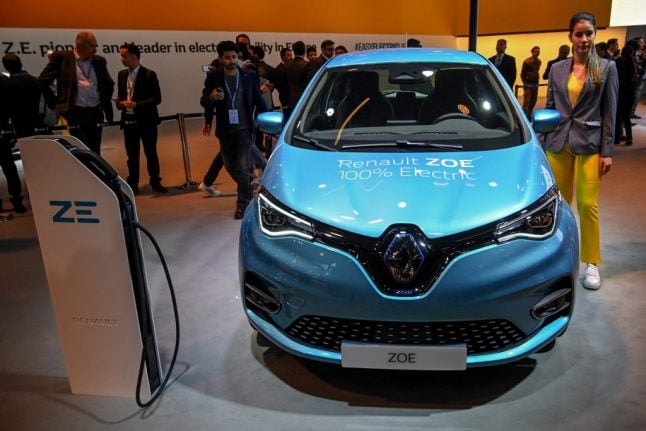The group blamed the effects of the debt-crisis in southern Europe for the extent of the sales plunge.
But the director for brands in the business, known fully as PSA Peugeot Citroen, said it expected sales to rise this year, excluding the sale of parts for assembly in Iran and despite expected further contraction of the European market.
PSA is struggling to restructure its business with a controversial plant closure in France, the shedding of 8,000 jobs, a strategic alliance with US group General Motors and a drive to expand sales outside Europe.
Brand director Frédéric Saint-Geours said he expected group sales to rise this year but did not provide figures.
He said in a statement that "the group is being hit full blast by the lasting fall of European markets" which he estimated would shrink further by 3.0-5.0 percent this year.
GM operates in Europe under the Vauxhall and Opel brands, but Saint-Geours said that there was no project for PSA to buy Opel which is based in Germany.
He also said that PSA did not intend to reduce its holding of 57.4 percent in the manufacturer of car parts Faurecia.
PSA is the second-biggest car manufacturer in Europe after German group Volkswagen which is strongly placed on export markets for high-quality vehicles, but the French group's sales fell below the three-million level in 2012 to 2.965 million.
By contrast Volkswagen announced in December that by the end of November it had beaten its sales in 2011, with a total of 8.29 million vehicles sold.
A report in mid-year by the newly installed French socialist government, in response to the shock announcement of the job cuts by PSA, found that the group had made strategic mistakes over 20 years, notably by missing the bus of globalisation, but accepted that it had no choice but to enact a deep restructuring.
In October, the government guaranteed financial support for the group of €5.0-7.0 billion ($6.54-9.15 billion) in the form of support for the subsidiary providing credit to customers and dealerships.
On Wednesday, the group said that the government had provided details of the support to European Union competition authorities in Brussels. The EU has made clear that it considers the rescue to amount to help for a restructuring of the entire group.
PSA gave new insights on January 2 into its problems, saying that sales in its home market France had dropped by 17.5 percent last year. Sales in Italy, Spain and Portugal fell even harder.
The group does 60 percent of its business in France and southern Europe. However, sales held up in Germany and rose in Britain.
The group has factories in Russia and in China and sales in Russia surged by 7.4 percent to 78,000 and in China they rose faster than the market, by 9.2 percent to 442,000 vehicles.
But the group suffered setbacks in Latin America, with delays in the extension of a factory at Porto Real in Brazil where it intends to double production capacity by 2015.
Overall the group is reducing its dependance on Europe, with sales elsewhere rising from 33.0 percent of the total in 2011 to 38.0 percent last year and a target of 50 percent in 2015.
The group said in a statement on sales in 2012 before its forthcoming overall results: "PSA Peugeot Citroen recorded worldwide unit sales of 2,820,000 assembled vehicles, down 8.8 percent. Together, sales of assembled vehicles and CKD (completely knocked down or kit) units totalled 2,965,000, down 16.5 percent."
The statement said: "Southern Europe, where PSA Peugeot Citroen has a particularly large presence, was hit hardest, with the market down 13.3 percent in France, 14.9 percent in Spain and 20.9 percent in Italy."
"The decision to suspend sales of CKD units in Iran as from February in compliance with international regulations, which made it impossible to finance Iran-bound sales due to tighter international sanctions, also impacted Group sales in 2012," PSA said.
The carmaker had sold 457,900 CKD units in Iran in 2011.
Peugeot's decision to suspend business in Iran was to comply with international sanctions against the Islamic republic over its nuclear programme.
The firm also came under intense pressure from Washington lobbies to shut down its thriving operations in Iran after General Motors acquired a 7.0-percent shareholding in PSA.





 Please whitelist us to continue reading.
Please whitelist us to continue reading.
Member comments